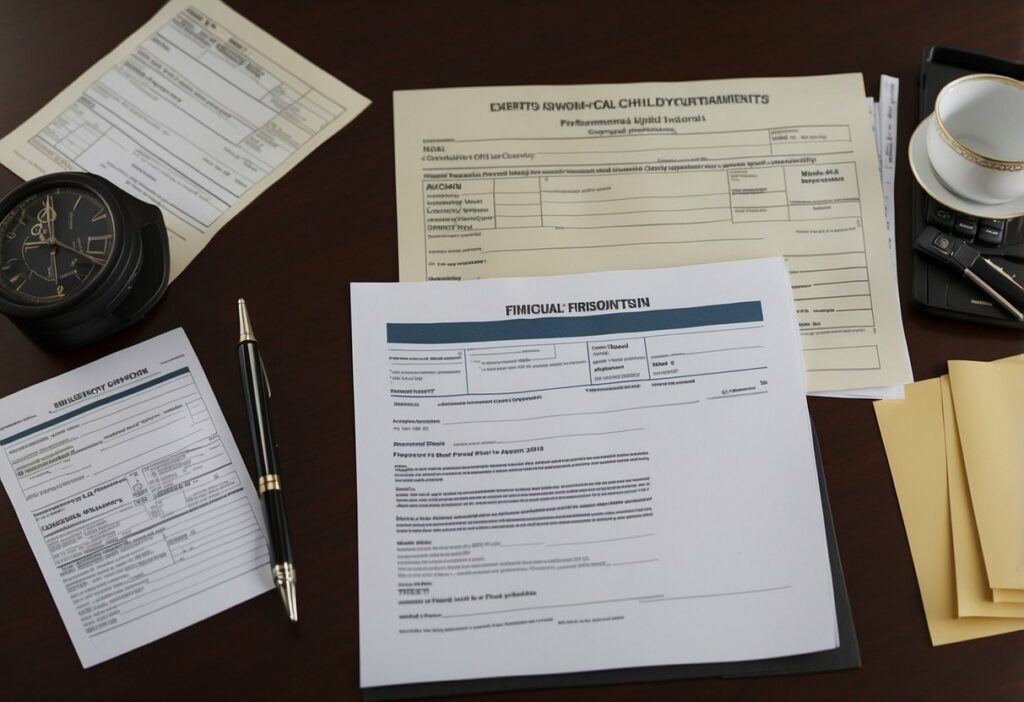How Can Legal Advice Assist in Navigating Shared Assets and Living Arrangements After a Breakup?

Breakups are tough, and things can get even more complicated when shared assets and living arrangements are involved. I’ve seen this happen to friends and family, and it’s stressful. Having legal advice can make a huge difference, helping to sort out who gets what and how to handle shared spaces without all the drama.
When you break up, you might not know the legal ins and outs of dividing belongings or property. A lawyer can explain your rights and help put everything in clear terms. They can guide you through splitting shared assets like houses, cars, and bank accounts, making sure things are fair and by the book.
Living arrangements after a breakup can be another big headache. You might need to figure out who stays in the shared home and who moves out. Legal advice can help you understand your options and reach an agreement that works for both of you, possibly avoiding a lot of conflict and confusion.
Understanding Shared Assets After Breakup

When a breakup happens, shared assets can become a tricky subject. It’s important to know what counts as shared assets and the typical types that people usually deal with.
Legal Definition of Shared Assets
Shared assets, also known as “marital property,” are things that both people own together. These can include properties, investments, or even debts. In legal terms, anything acquired during the relationship might be considered shared unless you have a prior agreement like a prenuptial. It’s crucial to understand this to prevent any misunderstandings or surprises during the separation process.
Common Shared Assets and Their Complexities
Common shared assets include houses, cars, bank accounts, and even pets. Each comes with its own set of challenges. For example, deciding who gets to stay in the family home can be emotional and complicated. Splitting a joint bank account or shared credit card debt can also be confusing.
Here’s a quick list of typical shared assets:
- Real Estate: Houses, apartments, land
- Vehicles: Cars, motorcycles, boats
- Financial Assets: Bank accounts, stocks, retirement plans
- Personal Property: Furniture, electronics, pets
Working through these issues often requires both people to be fair and open with each other, but having legal advice can help make things clearer and smoother.
Legal Advice and Asset Division

When splitting shared assets after a breakup, legal advice can be crucial. Getting help from a lawyer makes the process fair and less stressful for everyone involved.
Role of Legal Counsel in Asset Negotiations
A lawyer helps by explaining your rights and responsibilities. They can also point out which assets are considered shared or separate. This means you’ll know what you are entitled to. Lawyers also look at debts to make sure they get shared correctly.
Another important thing lawyers do is help you negotiate. They can talk to your ex’s lawyer to reach an agreement. This is important because it can keep things civil and speedy.
Legal Strategies for Fair Asset Distribution
Legal strategies focus on fair division. One common method is making a list of all assets and their values. This includes both physical items and financial assets. Lawyers help by making sure both sides agree on the value of each item.
Sometimes, dividing things equally isn’t possible or fair. Lawyers offer solutions like selling shared assets and splitting the money. They can also suggest sharing certain assets over time, like co-owning a home until it sells.
In some cases, lawyers might recommend mediation or arbitration if you can’t agree. These methods are alternatives to going to court and can be cheaper and faster.
Living Arrangement Considerations

When a relationship ends, figuring out who will stay in the home and who will leave is crucial. Legal advice can help navigate these decisions and understand the legal ramifications of your cohabitation status.
Deciding Who Stays and Who Leaves
After a breakup, deciding who stays in the shared home can be tough.
If you both own the property, you might need to sell it and split the profits. If one person wants to keep it, you’ll need to figure out how to buy out the other’s share. This can involve refinancing the mortgage.
For rented properties, the solution depends on the lease agreement. One of you might take over the lease, or both might need to find new places to live. Talking to your landlord about these changes is important.
Legal Implications of Cohabitation Status
Whether you’re married, in a civil union, or just cohabiting affects the legal considerations of your shared living arrangements.
For married couples or those in a civil union, state laws will have clear guidelines on property division. You might have to go through legal proceedings to determine who gets what.
For unmarried couples, property division depends on whose name is on the deed or lease. If both names are listed, you’ll need to reach an agreement on splitting the property. Consulting a lawyer can help clarify your rights in these situations.
Keep in mind, some states have common-law marriage laws that might impact your case if you’ve been living together for a long time. Always check the local laws to understand your specific situation.
Protecting Your Financial Rights

After a breakup, managing shared assets and finances can be tricky. It’s important to focus on your financial rights and responsibilities to make sure everything is handled fairly.
Credit and Debt Responsibilities
When you separate from your partner, the first thing to check is whose name is on the shared debts. Debts can include credit cards, loans, or any other financial responsibilities. If both names are on them, both people are responsible, no matter who spent the money.
- Steps to take:
- List all debts: Collect all statements and see whose name is listed.
- Contact creditors: Let them know about the separation and negotiate how the debt will be paid.
- Monitor credit reports: Regularly check credit reports to spot any unauthorized transactions or changes.
You can also work with a legal advisor to draft agreements that clearly state who pays what. This can help prevent future issues and protect your credit score from getting damaged by missed payments.
Separating Joint Accounts and Insurance
You may have shared bank accounts, savings, or insurance policies with your ex-partner. Start by determining which accounts need to be closed or divided.
- For joint bank accounts:
- Close or split: Decide if you want to close shared accounts or split the money evenly.
- Open new accounts: Create separate accounts in both your names to avoid any future mix-ups.
- Update direct deposits and bills: Ensure your salary and automatic payments go to your new accounts.
- For shared insurance policies:
- Health and car insurance: Remove the other person and update the beneficiaries on life insurance policies.
- Homeowners or renters insurance: Check if you need a new policy for your living situation.
Taking these steps can help you manage your financial responsibilities and ensure a clean break from shared financial ties.
Navigating Custody and Support Issues

When a relationship ends, custody and support issues can become complex. You need to understand rights and responsibilities to ensure what’s best for your child and your financial future.
Child Custody Arrangements
Child custody arrangements are crucial. There are two main types: physical custody and legal custody. Physical custody refers to where the child lives. Legal custody covers decision-making for the child’s welfare.
Joint custody means both parents share responsibilities, while sole custody means just one parent does it all.
During a breakup, folks often prefer joint custody if both can agree on major decisions. Courts usually favor arrangements that benefit the child’s best interest. If you and your ex can agree on a plan, it often speeds things up. If you can’t, the court will decide based on many factors, including each parent’s living situation, relationship with the child, and ability to provide a stable environment.
Calculating Child and Spousal Support
Calculating support can be complicated. For child support, each state uses formulas considering parents’ incomes, childcare costs, and the number of overnight stays with each parent. You can find calculators online to estimate potential payments, but it’s best to get legal advice for accuracy.
Spousal support, often called alimony, might be temporary or long-term. Amounts depend on factors like the length of the marriage, each person’s financial situation, and their ability to earn a living. Courts aim to ensure both parties can maintain a reasonable standard of living after the split.
Getting legal advice helps you understand your rights and duties and can make sure you’re not paying or receiving too much. In some cases, a mediator might assist in reaching agreements without going to court.
